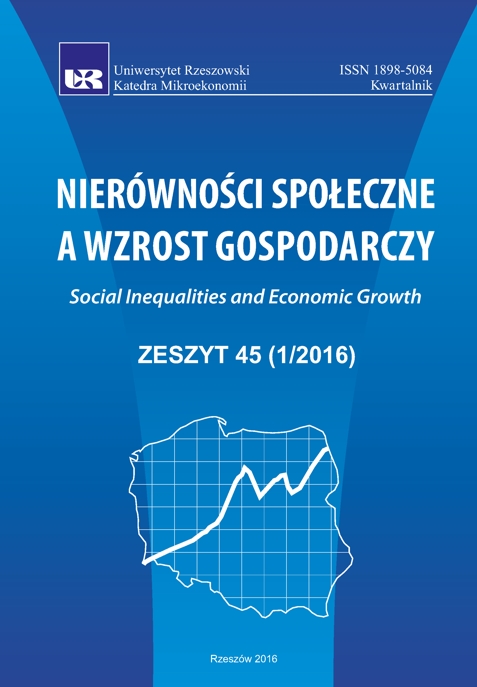The Impact of Corporate Social Responsibility on Brand Loyalty of Consumers
DOI:
https://doi.org/10.15584/nsawg.2016.1.3Keywords:
CSR, market decision, brand loyaltyAbstract
Corporate Social Responsibility is based on voluntary business practice taking into account the environmental and social issues, while also forming partnerships, responsible relationships with all stakeholders of company, i.e. customers, investors, employees, suppliers, the media, public administration and the local community. This responsible approach to the wider environment – becomes a standard, imposed enterprises, which changes the functioning of companies. Despite some backlog compared to the more developed economies of Western European countries, among others, in society's attitude towards environmental issues and engage the business sector in the social sphere, this concept is applied in enterprises operating in Poland and relatively well evaluated by potentially interested in its implementation – the consumers. CSR is noticed among others and in advertising and activities at points of sale. In this area, however, there is a deficiency, as respondents in their answers stressed that “do not see” practices of CSR in the market activities of enterprises. Unfortunately, they are not take into account the company's activities in the field of CSR when shopping also. This means that on the one hand, Polish consumers are convinced of the benefits that may give an undertaking after implement CSR, on the other hand – do not choose products (services) socially responsible companies. The aim of this article is to present the perception of Corporate Social Responsibility by Polish consumers and its impact on brand loyalty.Downloads
Download data is not yet available.
Downloads
Published
2020-11-10
How to Cite
Howaniec, H. (2020). The Impact of Corporate Social Responsibility on Brand Loyalty of Consumers. Social Inequalities and Economic Growth, 1(45), 32–40. https://doi.org/10.15584/nsawg.2016.1.3
Issue
Section
Articles
License
Copyright (c) 2016 University of Rzeszow

This work is licensed under a Creative Commons Attribution-ShareAlike 4.0 International License.


